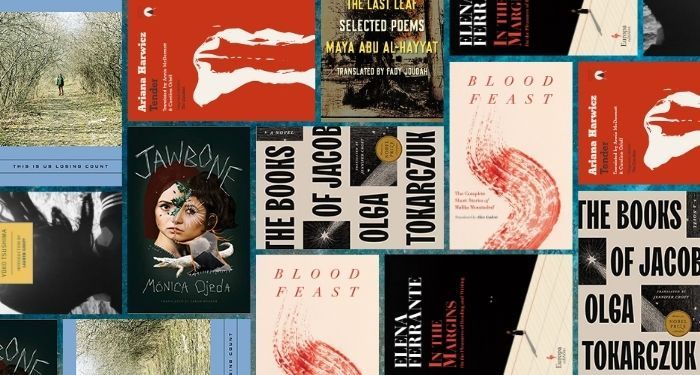
Spring 2022 New Releases: In Translation
The days are getting longer and spring is in the air. Admittedly I’m writing this in the midst of another snowstorm in New England and it doesn’t feel anything like spring, but supposedly it’s coming. And while I wait for better weather, I can enjoy the spring 2022 new releases in translation. There’s something for everyone this season, with exciting debuts, thoughtful nonfiction, stunning poetry collections, and so much more. Readers will be particularly excited to see new titles from favorite authors like Olga Tokarczuk, Elena Ferrante, and Yūko Tsushima, and beloved translators like Jennifer Croft, Ann Goldstein, and Geraldine Harcourt.
I’ve poured over the catalogs and galleys and highlighted just some of the best spring 2022 new releases in translation, and because there’s just so much to choose from, I’ve added notes for others you should seek out as well! Looking over the lists I noticed there was even more incredible literature translated from Spanish this season than usual, more than I could fit into this list, so if you need just a few more suggestions check out The Wonders by Elena Medel, translated by Lizzie Davis and Thomas Bunstead, Linea Nigra: An Essay on Pregnancy and Earthquakes by Jazmina Barrera, translated by Christina MacSweeney, and Portrait of an Unknown Lady by Maria Gainza, translated by Thomas Bunstead.
Best Spring 2022 New Books In Translation
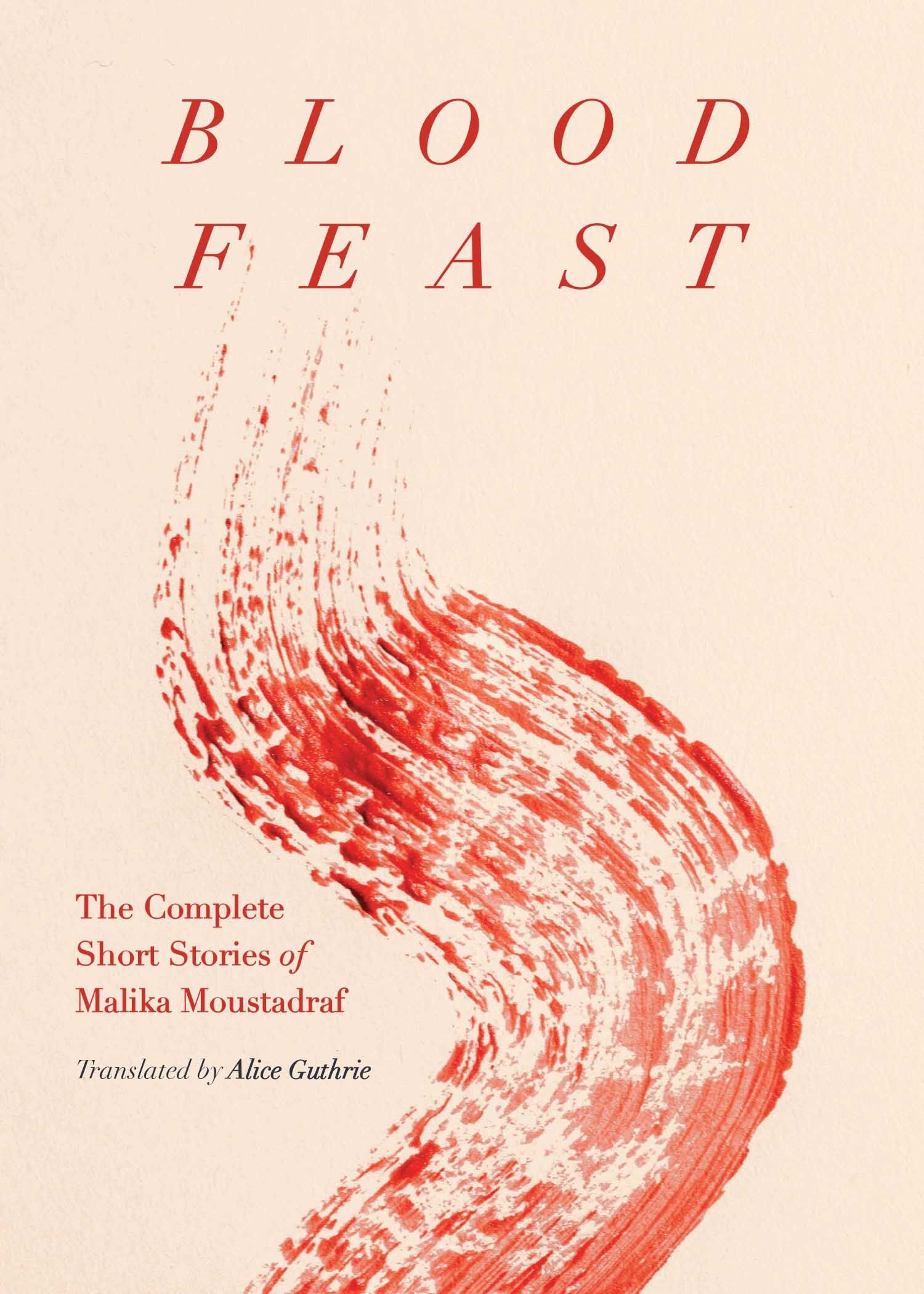
Blood Feast: The Complete Short Stories of Malika Moustadraf Translated by Alice Guthrie
Malika Moustadraf is a feminist icon in contemporary Moroccan literature but she’s not well known outside of the country. Blood Feast reckons with this loss, bringing together a complete collection of her vivid and compelling short stories ― on gender, sexuality, class, illness, and more. Moustadraf is a brilliant observer and thinker and her short stories are razor-sharp and endlessly thrilling. I’m especially grateful for translator Alice Guthrie’s extensive and nuanced translator’s note and all of the Moroccan people she credits with this important work of literary recovery. (Feminist Press, February 8)
And don’t miss Violets by Kyung-Sook Shin, translated by Anton Hur. (Feminist Press, April 22)
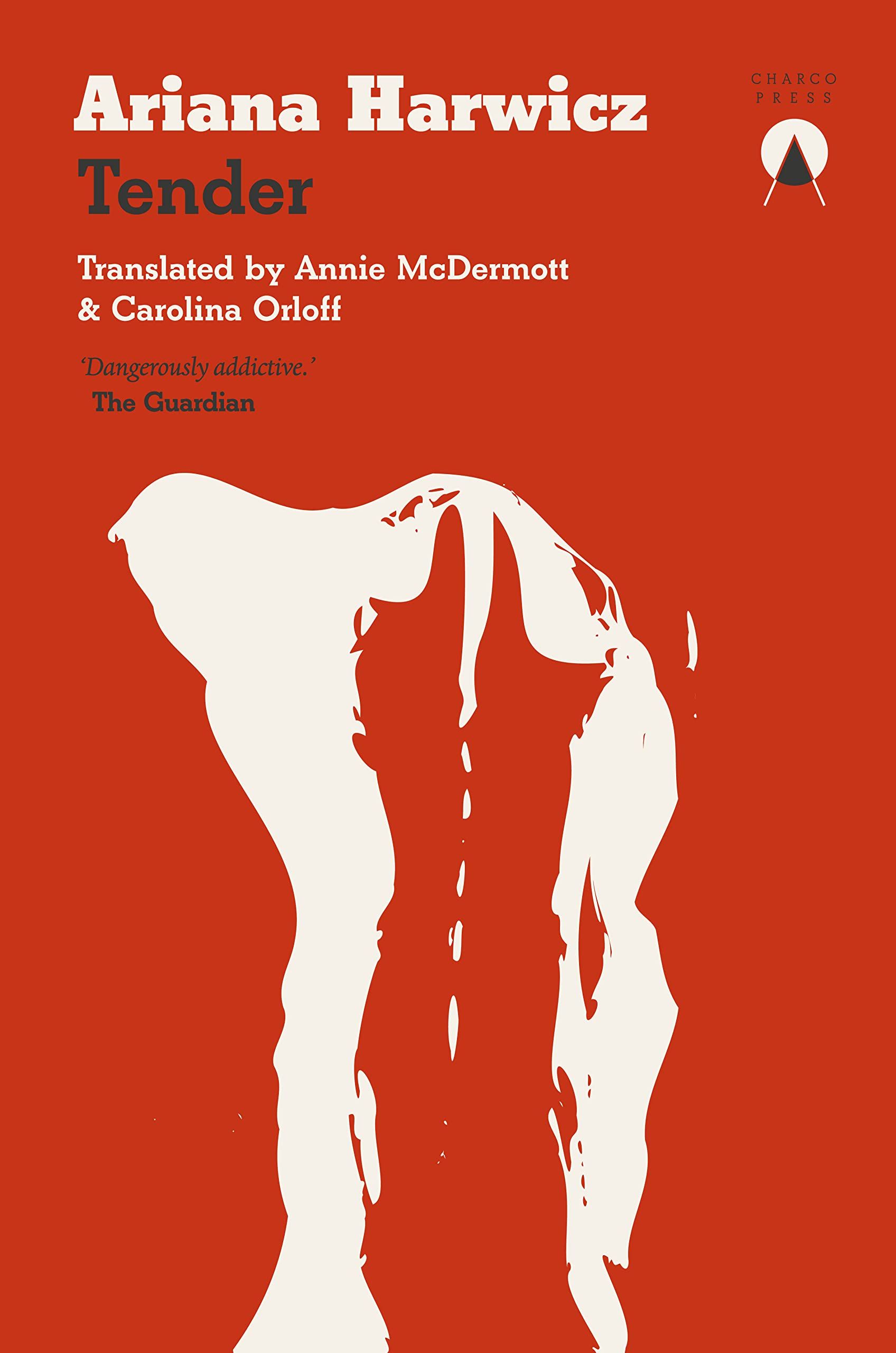
Tender by Ariana Harwicz, Translated by Annie McDermott and Carolina Orloff
Motherhood, womanhood, lust, death, madness. There’s a reason so many readers, myself included, are obsessed with Ariana Harwicz’s dark and relentlessly good writing. Harwicz is one of the most radical figures in contemporary literature, often compared to Nathalie Sarraute, Virginia Woolf, and Sylvia Plath. Tender is the third and final book in her “Involuntary Trilogy” after Die, My Love and Feebleminded, and it finds us again in the French countryside, this time following Harwicz’s unnamed narrator’s complex and destructive relationship with her teenage son. (Charco Press, February 15)
There’s no way I’d ever be able to pick just one more Charco Press title to recommend, so do yourself a favor and buy a subscription.
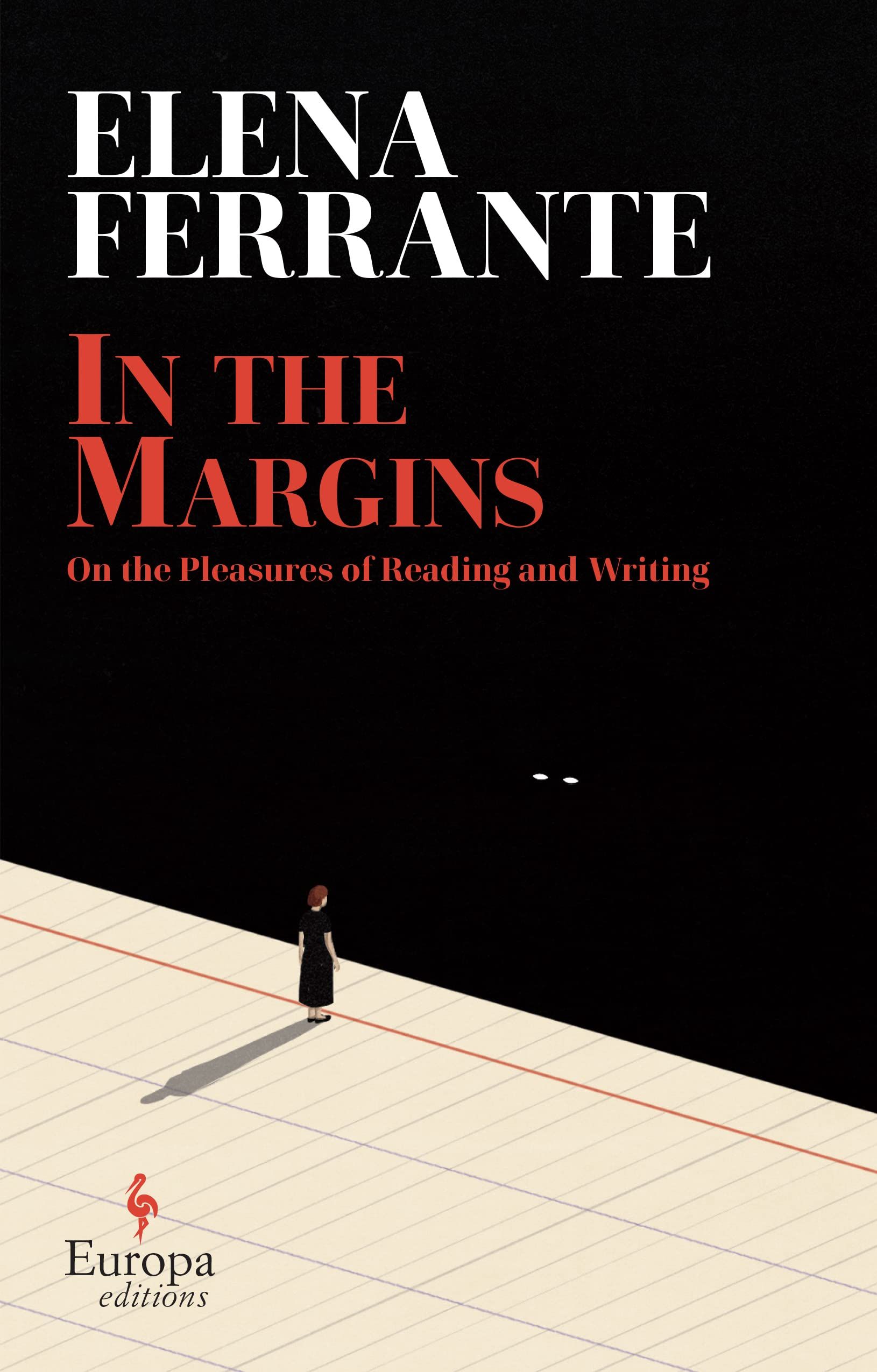
In the Margins: On the Pleasures of Reading and Writing by Elena Ferrante, Translated by Ann Goldstein
In The Margins collects four new essays by Elena Ferrante, author of the Neapolitan Novels, and most recently The Lying Life of Adults. In these new essays, Ferrante writes about her literary influences and her beginnings as a reader and a writer. She discusses the work of artists she’s drawn to, including Emily Dickinson, Gertrude Stein, and Ingeborg Bachmann, among others. Thoughtful and engaging, these essays are another fascinating glimpse into Ferrante’s art and mind. (Europa Editions, March 15)
And don’t miss All the Lovers in the Night by Mieko Kawakami, translated by Sam Bett and David Boyd ― especially for fans of Kawakami’s debut novel Breasts and Eggs. (Europa Editions, May 3)
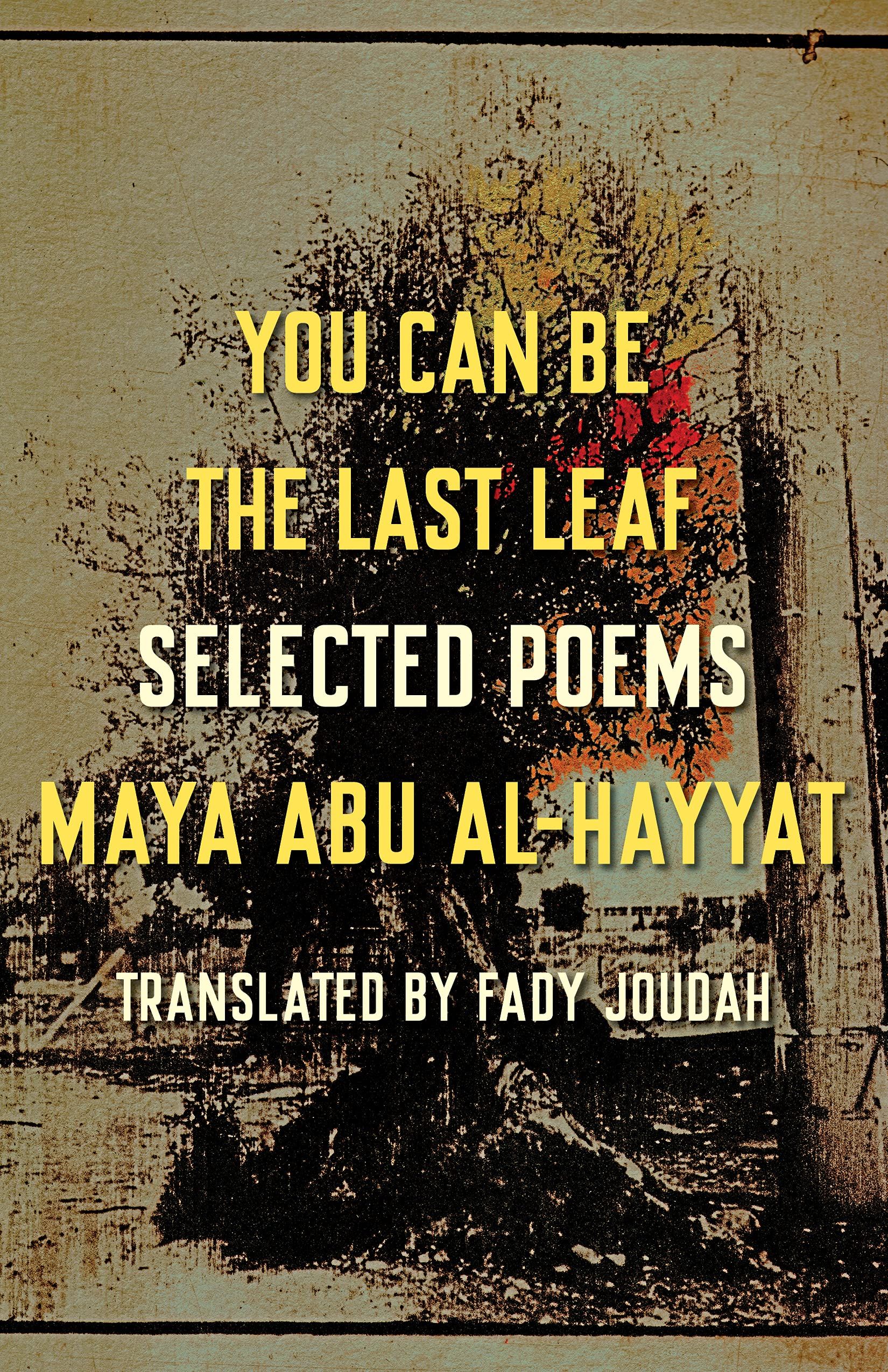
You Can Be the Last Leaf: Selected Poems by Maya Abu Al-Hayyat, Translated by Fady Joudah
Maya Abu Al-Hayyat is the director of the Palestine Writing Workshop and author of four novels, many children’s books, and four poetry collections. You Can Be the Last Leaf is her first collection to be published in English, translated by acclaimed poet Fady Joudah. It includes poems from her four collections published over two decades, allowing readers to witness the breadth of her talents. As Joudah writes in his foreword, “the multifarious Palestinian voice lives on in [her] words, ordinary as grief and daily as laughter.” And there is so much grief and laughter in this collection, loss and love, as we watch the poet over time in an unending occupation. This unceasing violence seeps into her interior world too, her home and mind. But she still fiercely demands space for desire, laughter, and hope.(Milkweed Editions, May 10)
And don’t miss The Life and Death of a Minke Whale in the Amazon: Dispatches from the Brazilian Rainforest by Fábio Zuker, translated by Ezra E. Fitz. (Milkweed Editions, May 10)
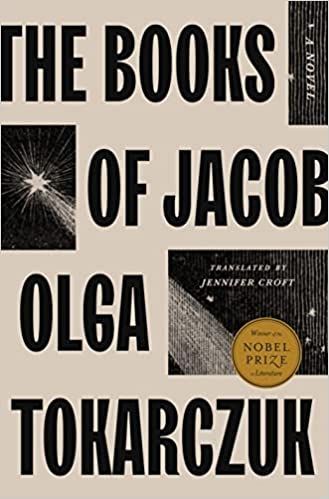
The Books of Jacob by Olga Tokarczuk, translated by Jennifer Croft
First published in Poland in 2014, The Books of Jacob has long been discussed as one of the Nobel Prize winning author Olga Tokarczuk’s most important and ambitious novels. In fact, the Nobel Prize committee described it as her magnum opus. And now, thanks to Booker International Prize–winning translator Jennifer Croft, it’s available in English. Set in mid-18th century Europe and based on historical figures and events, the novel follows Jacob Frank, a charismatic self-proclaimed messiah, and his followers. It’s next to impossible to capture this vast and expansive epic in a few words but I’d encourage everyone to read this clever, funny, and unimaginably rich work for themselves. (Riverhead, February 1)

Woman Running In the Mountains by Yuko Tsushima, Translated by Geraldine Harcourt
Yūko Tsushima is considered one of the most important Japanese writers of her generation, known for stories that center women’s lives. I’ve always known and loved her for her painfully beautiful novel Territory of Light, which follows a woman starting her life over again with her young daughter after being left by her husband. The translation by Geraldine Harcourt is particularly exquisite and I was thrilled to discover that this early work would be published. Set in 1970s Japan, Woman Running In the Mountains is another story of a young, single mother striving to find her place in the world. It’s an equally bracing novel of single parenthood but with an expansiveness and shimmering beauty that ultimately feels like a powerful act of defiance. (NYRB Classics, February 22)
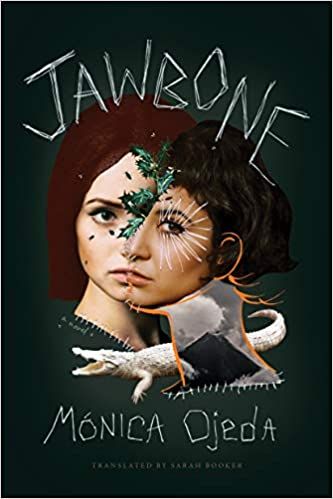
Jawbone by Mónica Ojeda, Translated by Sarah Booker
Ecuadorian writer Mónica Ojeda was included on the Bógota39 list of the best 39 Latin American writers under 40 in 2017, and in 2019 she received the Prince Claus Next Generation Award. Jawbone is her English-language debut and it follows Fernanda and Annelise, two inseparably close friends at an elite Catholic school that become ever more involved in the occult with their school friends. “It’s only fun if it’s dangerous” says Annelise, perfectly capturing the reading experience of this chilling nightmare of girlhood and adolescence, full of body horror, pleasure, and pain. (Coffee House, February 8)
And don’t miss When Women Kill by Alia Trabucco Zerán, translated by Sophie Hughes. (Coffee House, April 5)
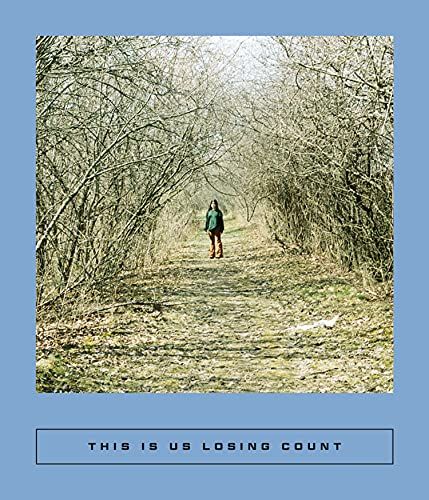
This Is Us Losing Count: Eight Russian Poets by Alla Gorbunova, Irina Kotova & Others, Translated by Elina Alter & Others
I’ve loved the Calico series from Two Lines Press since its inception. The series presents vanguard works of translated literature in strikingly designed ― and eminently collectible ― editions. This stunning bilingual collection features eight contemporary Russian poets and seven translators. I was struck by the range of voices in the collection, diverse in age, style, and from all over Russia ― some are overtly political, queer, and feminist, while others are more quietly subversive. Through each distinctive section of the collection there is the through line of memory and time, of past and present, and ultimately of the future. This Is Us Losing Count is a fascinating glimpse into modern Russian poetry that leaves me longing for more. (Two Lines Press, March 8)
Looking for even more great recommendations? Check out these 24 Must-Read 2022 Books In Translation.





